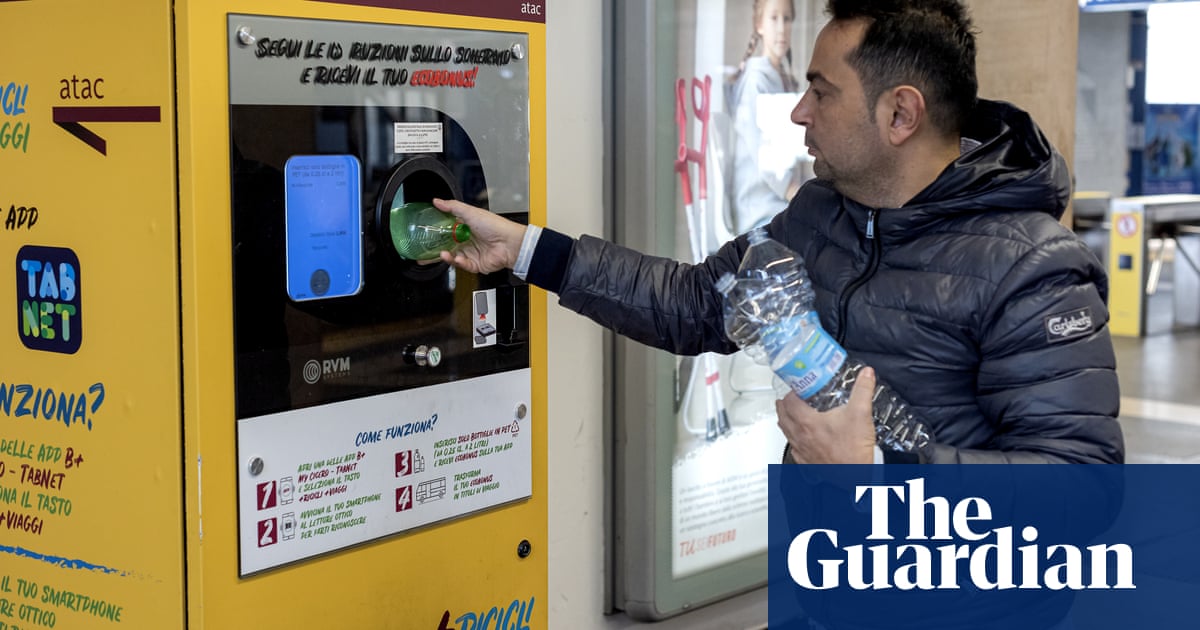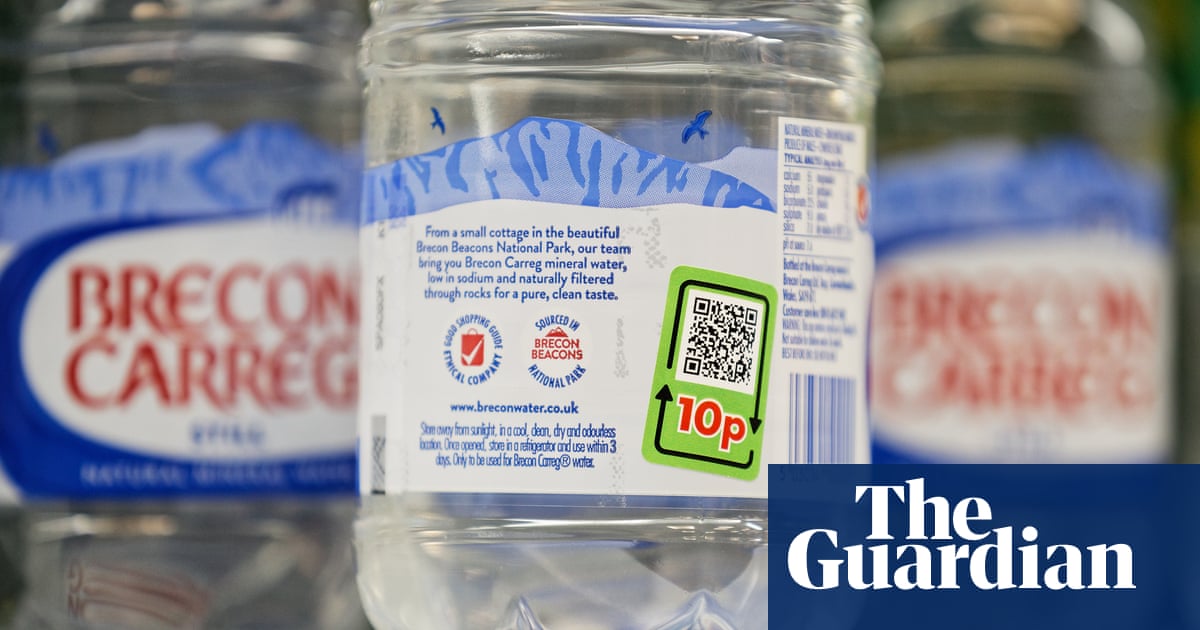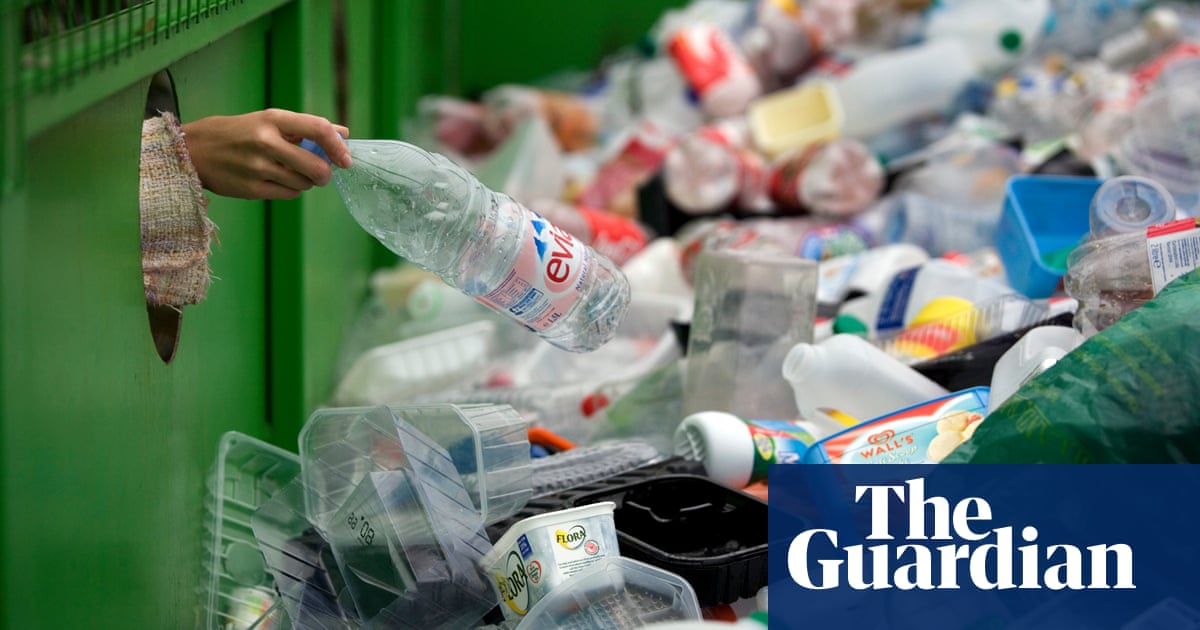
The launch of the UK’s first bottle and can deposit scheme is expected to be delayed again, with Scottish ministers accused of giving in to lobbying from retailers and industry.
The scheme, in which shops in Scotland will be required to install recycling machines and charge a 20p deposit on every can and bottle, was due to be launched in July next year – three years after it was originally unveiled.
Deposit return schemes have been shown to cut littering, reduce waste sent to incinerators that contribute to climate heating, conserve scarce resources and cut energy use by boosting glass, plastics and metal recycling.
It is understood Nicola Sturgeon’s cabinet will be told on Tuesday the scheme will not now start until March or October 2023, despite the Scottish National party’s manifesto pledge earlier this year it would start as planned next July.
The delay has alarmed environment campaigners, who had originally praised the Scottish government’s leadership.
The Association for the Preservation of Rural Scotland, Greenpeace UK and Surfers Against Sewage are lobbying MSPs to reject the delay, which will need to be approved by Holyrood. The scheme was originally due to start in April this year.
“A further delay just after Scotland hosted Cop26 would send out a clear message to the world that – despite all its fine words – the Scottish government is simply not serious about striving for net zero,” the campaigners told MSPs last week.
The delay is expected to be announced in Holyrood on Wednesday by the Scottish Greens minister, Lorna Slater, who was appointed Scotland’s green skills, circular economy and biodiversity minister in a historic cooperation deal between Sturgeon’s government and the Greens in August.
Slater’s decision to approve the delay will cause anger and disquiet among Scottish Green activists and voters: next year’s start-date was also set out in the party’s manifesto at May’s election.
Three days after Sturgeon revealed her government would begin official talks on a cooperation deal with the Greens, Slater tweeted:
The deposit return policy will directly affect major drinks firms such as AG Barr, the makers of Irn-Bru, which won worldwide fame when it became a talking point during the Cop26 climate talks.
AG Barr had the monopoly on supplying soft drinks inside the summit venue. Sturgeon, who has criticised the Glasgow climate deal as inadequate, presented the US congresswoman Alexandria Ocasio-Cortez with a can of Irn-Bru last week.
A Scottish government spokesperson said ministers “remain fully committed” to implementing the scheme but would not confirm or deny it would be delayed. He confirmed the start date was under review.
“Industry has made progress, including the establishment of a scheme administrator, Circularity Scotland,” he said. “This has been done in trying circumstances, with those sectors responsible for delivering the scheme facing unprecedented disruption as a result of the pandemic and Brexit.”
Angus MacDonald, the former SNP MSP who chaired the Holyrood committee that oversaw the scheme’s legislation, said there was no good reason for another delay, and that Norway and Germany were far faster in implementing their schemes.
“Modern systems tend to take about a year to get set up once the structure is agreed, as happened here months ago. I’ve seen no good reason why our clear commitment to launch Scotland’s already delayed system next year can’t be met,” he said.
Circularity Scotland hinted on its website the start date could be delayed. “Currently, the launch of the scheme is anticipated to take place on 1 July 2022, however this may change depending on the outcome of a review currently being undertaken by the Scottish government,” it said.
APRS, Greenpeace and Surfers Against Sewage predict a further delay will lead to millions of used cans and bottles littering towns and the countryside.
In a briefing given to Holyrood MSPs last week, they said 64m bottles and cans would be littered in Scotland between April 2021 – the scheme’s original start date, and July 2022, increasing cleansing and waste disposal costs for local authorities. Zero Waste Scotland, a government-funded charity, has estimated the deposit return scheme will cut Scotland’s carbon emissions by 160,000 tonnes a year.
Nina Schrank, a plastics campaigner at Greenpeace, said: “It’s shocking to see the Scottish government once again choosing to delay the long-awaited deposit return scheme until 2023, while continuing to spout fine words about environmental protection. This vital manifesto promise, backed by the Scottish Greens and SNP, has yet to be delivered and this new delay is not good enough.
“If Nicola Sturgeon’s government wants its green credentials to be taken seriously, it needs to start turning words into actions: more delay means plastic pollution continues to devastate people and planet, and her words ring hollow. Our planet can’t afford many more broken promises and delays like this.”












